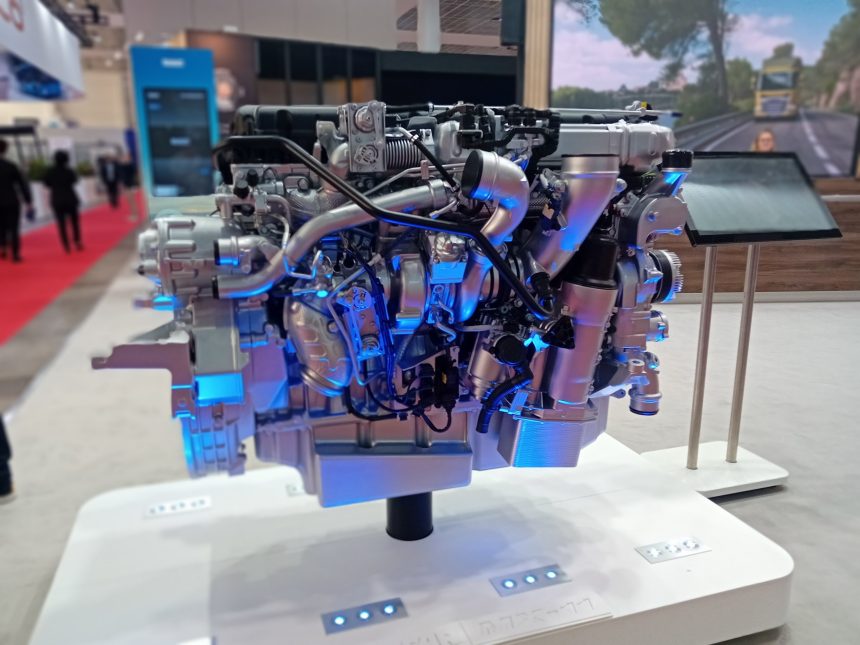Work by DAF on Euro 7 engines is well in hand despite ongoing uncertainty around what those emission standards will require and when they will be introduced, the manufacturer has said.
Euro 7 was first expected to come in 2027, although more recently a suggestion has emerged that its introduction may be delayed to 2029 and with amended emission levels, a source claims.
A spokesperson for DAF says it is keen to learn of final decisions around Euro 7, although they note that regardless of what it may mandate, the OEM “will definitely be there.”
Talk around Euro 7 came while DAF debuted its latest generation MX-11 (pictured) and MX-13 Euro VI units for coach and bus use at Busworld. New cylinder heads and blocks form part of that work along with revised piston and cylinder liner designs and new injectors, turbochargers, air compressors, oil pumps, and alternators.
Maximum torque in the latest Euro VI MX-11 and MX-13 units has been increased by between 50-150Nm, while the engine brake is more effective. Irizar quickly confirmed its plans to use the engines from 2024 in its integral coaches and it is expected that other coach OEMs will introduce the new units from around the same time.
For Euro 7, DAF says that additional combustion optimisation measures will be taken in light of the expected further reduction in particulate emission levels. Pistons and piston rings will be optimised in the name of minimising oil consumption, but the OEM says that the biggest challenge for Euro 7 will be aftertreatment.



























